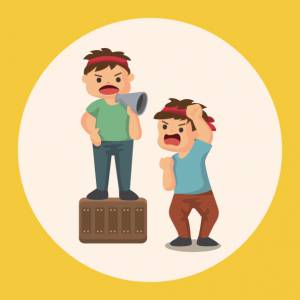Civil disobedience is a way that people rebel against what they feel is an unfair law. Mahatma Ghandi, Rosa Parks, and Henry Thoreau are just a few of the most common names associated with civil disobedience, but historians know that the concept is much older than Thoreau’s essay from the 1800s. Sophocles depicts civil disobedience in his play “Antigone.” The heroine, Antigone, defies the King of Thebes, who won’t let her give her brother a proper burial. He not only threatens her with death, but carries it out. However, her conscience is clean.
Ride With Pride Controversy
A bus driver for Calgary Transit refuses to drive any bus that is decorated in rainbow colors. Jesse Rau states that his religious beliefs are being violated and that he shouldn’t have to support the LGBT community. In a news conference, he told reporters that he would quit first. The Transit Authority says that this is a personnel matter between an employee and the employer. Is this civil disobedience?
The United States Gay Marriage Controversy
In the United States, Kim Davis has the spotlight after not issuing marriage licenses in a protest against gay marriage. She states that she is acting under “God’s authority” and doesn’t want her name on the licenses issued to gay couples. The issue has gone all the way to the United States Supreme Court, and it doesn’t seem finished yet. Davis is still in office, but refusing to comply with the law. Some people believe that what Kim Davis is doing is civil disobedience.
What Is Civil Disobedience?
Ronald Dworkin, a philosopher, asserts there are three types of civil disobedience:
- Integrity-based civil disobedience – this is when a citizen disobeys a law that they feel is immoral.
- Justice-based civil disobedience – A citizen disobeys a law in order to claim a right that has been denied.
- Policy-based civil disobedience – A person breaks the law so that the policy changes.
One of the principles of civil disobedience is that it must be publicly announced. Most people believe that it should be non-violent, but this is highly debatable. However, one article states that civil disobedience should be “carefully chosen.” Think about Nelson Mandela’s stand against apartheid in South Africa, or the northerners’ approach to slavery with the Underground Railroad during the United States’ Civil War.
Just Don’t Take the Job
Drawing a line in the sand isn’t always easy. The Ontario government put together an advisory panel on assisted suicide and euthanasia. They selected a prominent bioethicist, Moira McQueen, to serve on the panel to bring a Catholic counterweight to the table. McQueen is a professor of moral theology at St. Michael’s College in Toronto. She turned down the job, with the reason being that there is no way to mitigate the damage “when something is seriously wrong in the first place.” She asserted that she could not do more than make a moral objection to the process.
Civil Disobedience in Canada
In 2012, when Bill 78 was passed, thousands of people came together in Montreal to protest the new law. College and university students went on strike. Citizens banged on pots and pans daily at a specified time to express opposition. The demonstrations worked. The punitive sections of the bill were repealed in September after the general election.
Civil disobedience isn’t always cut and dried. Rosa Parks sat down on the bus to obtain basic human rights that were being denied to her. Nelson Mandela lingered in jail for years because he threatened the South African government. Bill 78 was wrong, and people came together to abolish the bad parts.
On the other hand, Jesse Hau could have gone to his employer and requested an undecorated bus for the duration of the festival. The city isn’t going to be intimidated by Hau, but will continue its message of inclusivity and diversity. It would seem that Jesse Hau wanted publicity, and that his actions were not civil disobedience.



